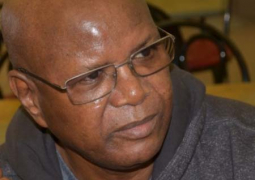
In recent months, there has been a noticeable surge in criminal activities, particularly violent crimes, including armed robberies, assaults, among other crimes. Some have pointed to a combination of socio-economic challenges, such as high unemployment rates, poverty, and the growing influence of criminal networks, as contributing factors to the surge.
Local communities, particularly in urban areas, have reported an uptick in incidents of gang-related violence and robberies.
Speaking to The Point, David Kujabi, a former Public Relation Officer of the Gambia Police Force, described systematic issues as the core in influencing crimes in the Country.
He further described violent crimes with proliferation of drugs as synonymous while stating that the Gambia Police Force should rethink its security approach and shift from Routine Patrols to Innovative Approaches for Effective Law Enforcement in addressing the surge in crime.
Mr Kujabi postulated that systemic failures, like the lack of a comprehensive rehabilitation system within prisons, where offenders are often placed in environments where they learn from each other and get hardened further. Also, the idea of simply pushing young people to seek work abroad without building sustainable locally based economic opportunities is not a long-term solution.
“In terms of long-term strategies, it would be useful to think about integrating education and skill-building into the prevention and rehabilitation process, rather than just focusing on punitive measures. If law enforcement is simply focusing on enforcement without addressing these underlying societal issues, then the cycle continues.”
He added: “Traditional law enforcement strategies focus on punishment and control; they don't necessarily address the root causes driving people, especially youth, toward crime in the first place.”
Lamin Jawara, a forex trader, stressed that crime is no longer a distant issue. “It is happening around us, affecting families, communities and the future.”
He stated that the surge in criminal activities from theft and violence to drug abuse and cybercrime is not just a failure of law enforcement but a reflection of deeper societal issues.
Jawara opined that the systemic issue contributing to crime and the struggles youth face, such as poverty, lack of education, and limited job opportunities often push young people towards crime as a survival mechanism or for status.
He thus called on the government to embark on significant reforms in the criminal justice system and also invest in preventive measures like early intervention, affordable housing, and education, and to focus on providing opportunities for youth to thrive.
Ansumana Colley, a political science student at the University of The Gambia, expressed concern over the increasing criminal activities. He attributed the rise in robberies and burglaries to the nation’s ongoing transition from autocracy to democracy, a period marked by significant social and economic changes.
“These transitional dynamics, which many young people struggle to navigate, have reshaped societal norms and behaviors. This, combined with an insufficient police presence in high-risk areas, undermines efforts to combat robbery,” Colley explained.
He further pointed to economic challenges, including inflation, unregulated pricing, and trade tariffs, as contributing factors. “The rising cost of living has driven some youth to resort to robbery as a means of survival in this challenging economic environment,” Colley added. He also emphasised the link between substance abuse and crime, noting that these factors fuel daytime robberies.
Sulayman Njie, a regional peace and security monitoring officer with the National Youth Council, described the situation as deeply concerning. “The recent surge in crime rates, particularly armed robberies, is unprecedented. In a short span, we have witnessed at least four major robberies—events that were once unimaginable but now occur in broad daylight,” he said.
Njie highlighted the widespread impact of these incidents, with communities in Farafenni, Central River Region, Brusubi, and Badjie Estate all affected. “This trend tarnishes the country’s image and poses a significant threat to national peace and security.”
National Assembly Member Modou L. Bah of Banjul North also voiced his concerns, describing the recent robberies as a “sad moment” for the country.
Referring to past incidents, including the death of a young girl in Westfield last year and injuries sustained by security officers, Bah stressed the urgent need for robust security measures.
“I strongly recommend a comprehensive security strategy, including constant patrols in commercial areas and other vulnerable zones, to ensure the safety of our people,” Bah stated.
He added that the surge in robberies has not only heightened fear among citizens but also exposed significant gap in The Gambia’s security framework.
“From economic challenges to insufficient policing, the root causes of this crisis are multifaceted however, as citizens and authorities alike call for immediate and decisive action, there is hope that a collaborative approach can restore safety and stability to the nation.” he said.
Read Other Articles In Headlines
NHRC validates report on TRRC implementation status
May 30, 2023, 12:06 PM




